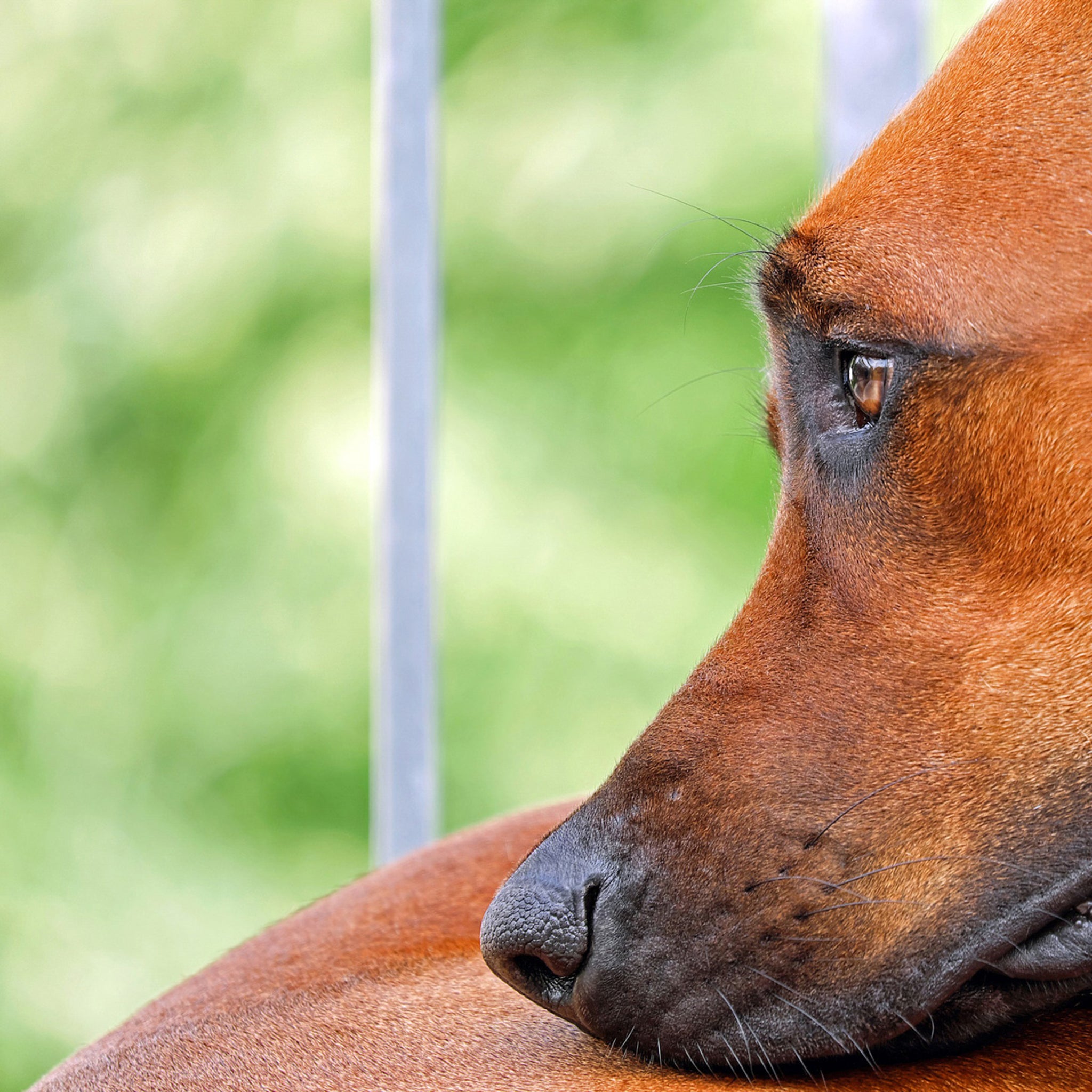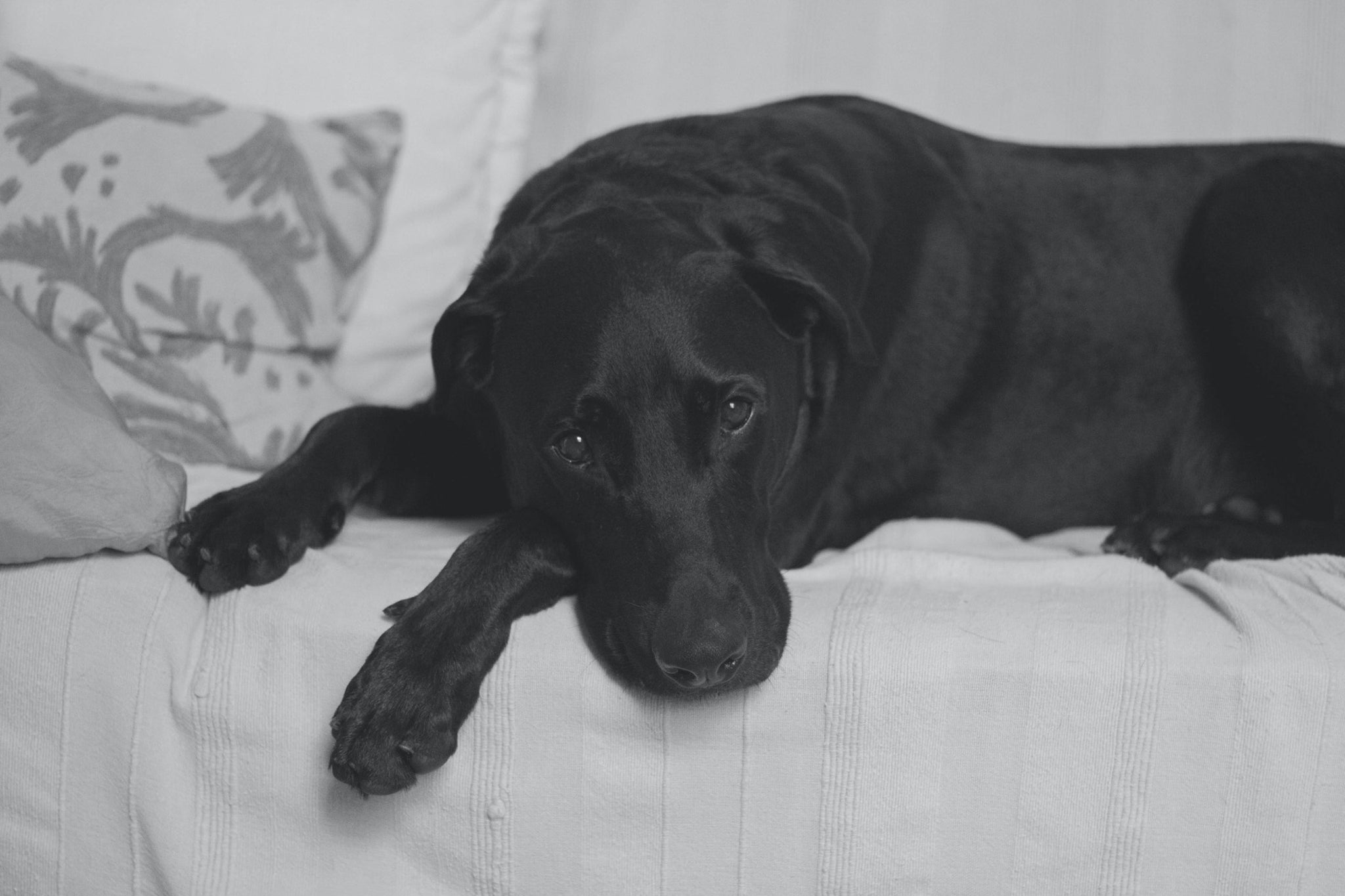Dogs grieve. They are in tune with you, emotionally and intuitively, and they all process loss differently. Here are some things you can do to help your dog cope after the loss of a family member.
Recognize Signs of Grief
Dogs may revert to puppy-like behavior during grief and will need extra comfort. They may be lethargic and/or anxious, and vocalize by whining, whimpering, or howling. Dogs also may lose their appetite for some time and have accidents in the house that they haven’t had in years. They could also misbehave or experience a personality change, especially if another dog has died and they are not sure what their new role is. Whatever symptoms your dog experiences, keep an eye on them and make sure they aren’t causing drastic physical changes. You may want to check with your vet to make sure symptoms aren’t caused by any internal complications.
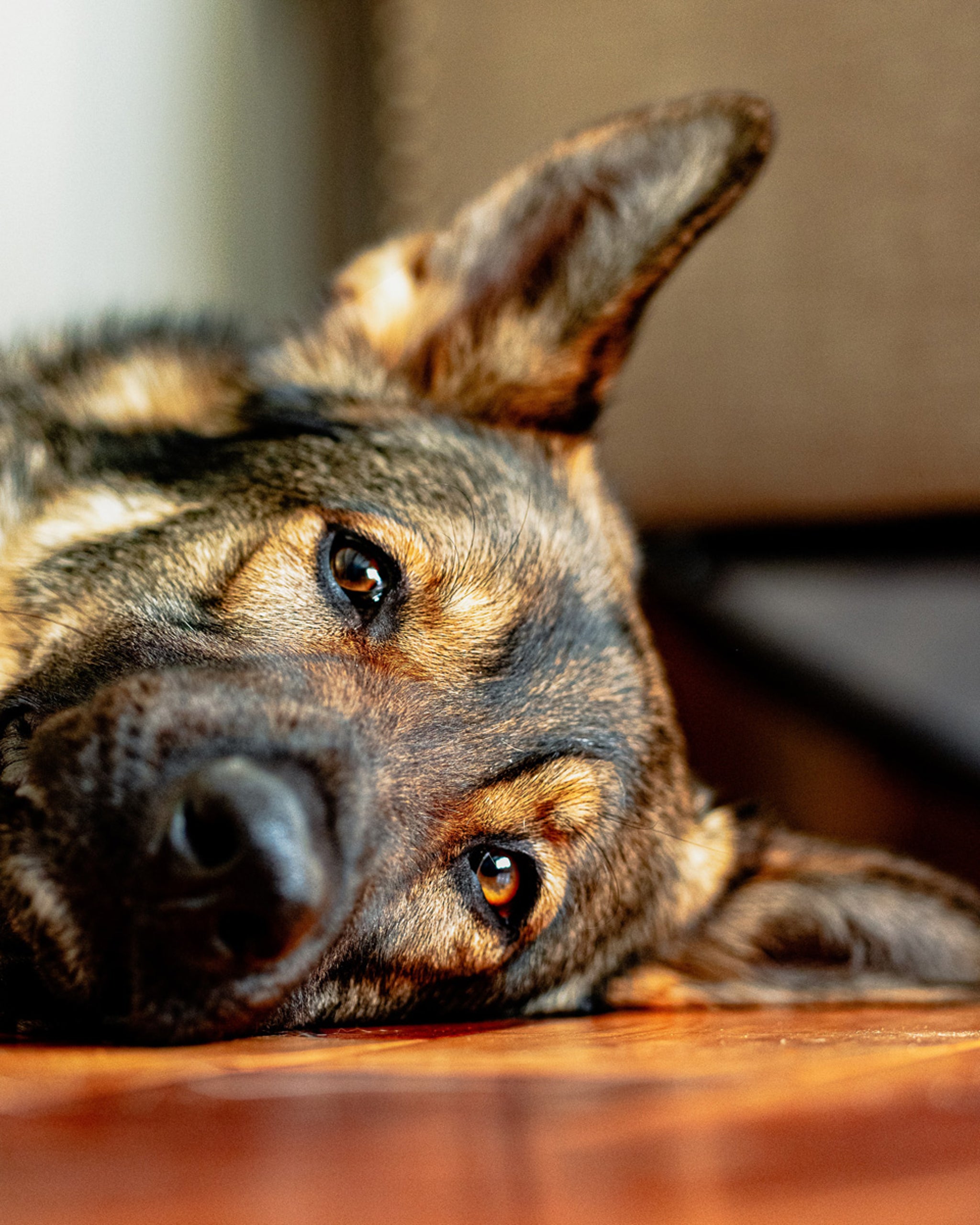
Consider Bringing Them with You
If another dog in the house is sick and passing soon, your dog may benefit from being by their side during treatment or euthanasia. Some veterinarians recommend them at least seeing a deceased dog’s body, as it may help them understand what’s happening. It does not make it easier for either of you, but they can sense what’s going on and it may help them cope.
If you are comfortable showing your deceased dog’s body to your other dog, be aware that their body may have a new smell now. Your dog will sense this and may behave differently in reaction to the change. Do whatever you are most comfortable with.
Don’t Rush to Replace
Whether another dog passed away or a caretaker is no longer able to care for the dog, do not try to replace whoever they lost. Bringing in a new dog or companion will not offer either of you the proper time needed to grieve and can feel invasive. Try to build or form a new relationship with your surviving dog that recognizes your new roles. And when it is time to bring in another pet, some recommend having your grieving dog help you decide.
Comfort Them, But Don’t Baby Them
You need to let your dog know that you will both be okay. It might be tempting to baby them, but don’t treat them like a puppy. This may feed into their anxiety and could be detrimental, prolonging their grief period. Try to reassure them by saying things like “it’s going to be okay,” instead of soothing, cooing, or giving extra attention during negative behavior.
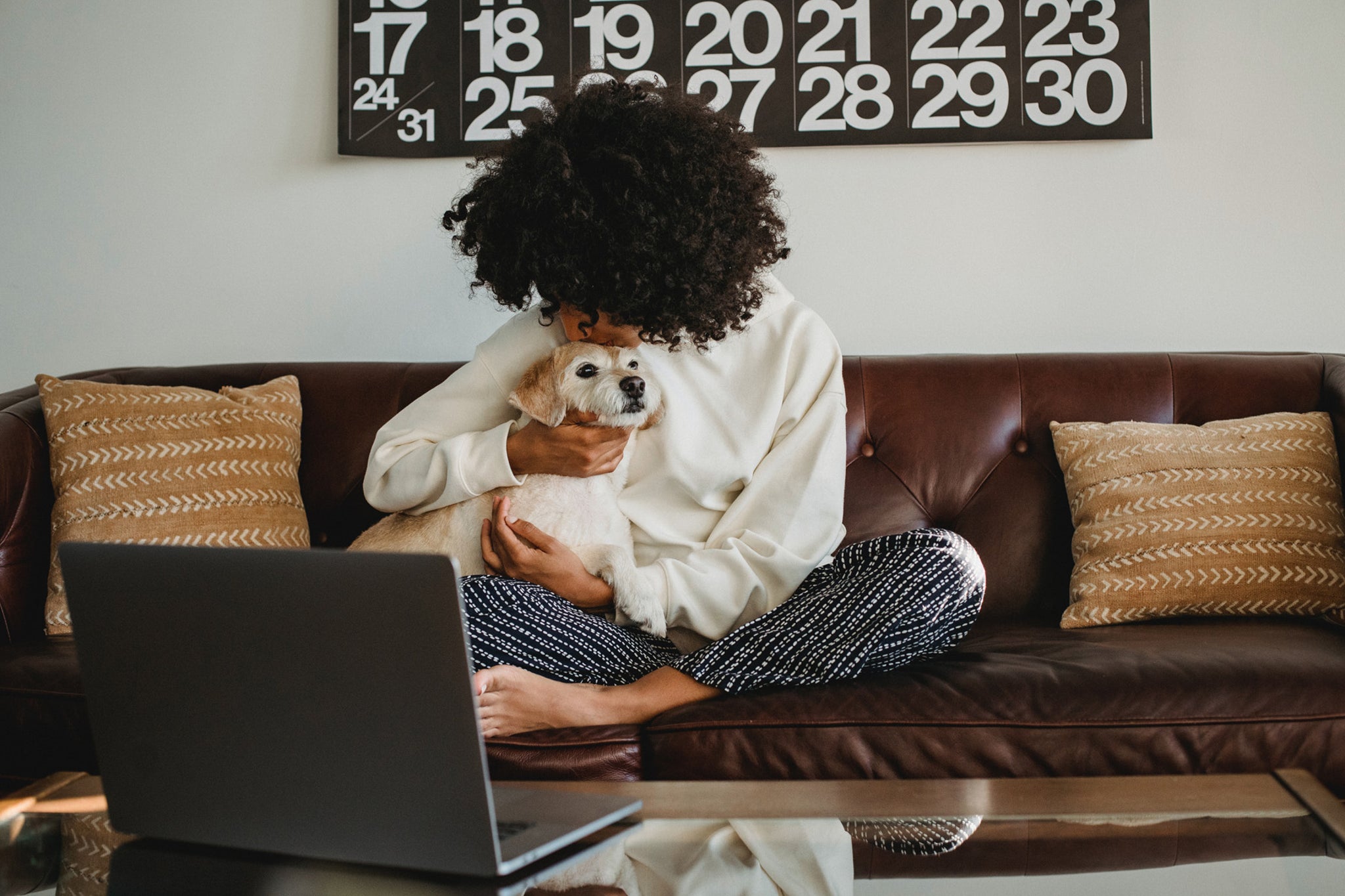
Increase Play and Exercise
Exercise is important for everyone to lower stress levels and manage excess energy. If your dog is anxious or sad while coping with loss, they probably have excess energy and play can help. You may need to encourage them, and it’s important to incorporate mindful play, where you’re both engaged. Play with them and show them that you’re interested. Use tug and play, fetch, and hide and seek around the house with treats to get them up and moving.
Get Outside
Taking a few moments to get outside with your dog has a multitude of benefits for both of you. The fresh air will relieve tension and stress and can clear both of your heads. Outdoors, there are plenty of scents, sights, and sounds that will stimulate your dog’s brain. The fresh air gets them out of the house where they are reminded of who they lost.
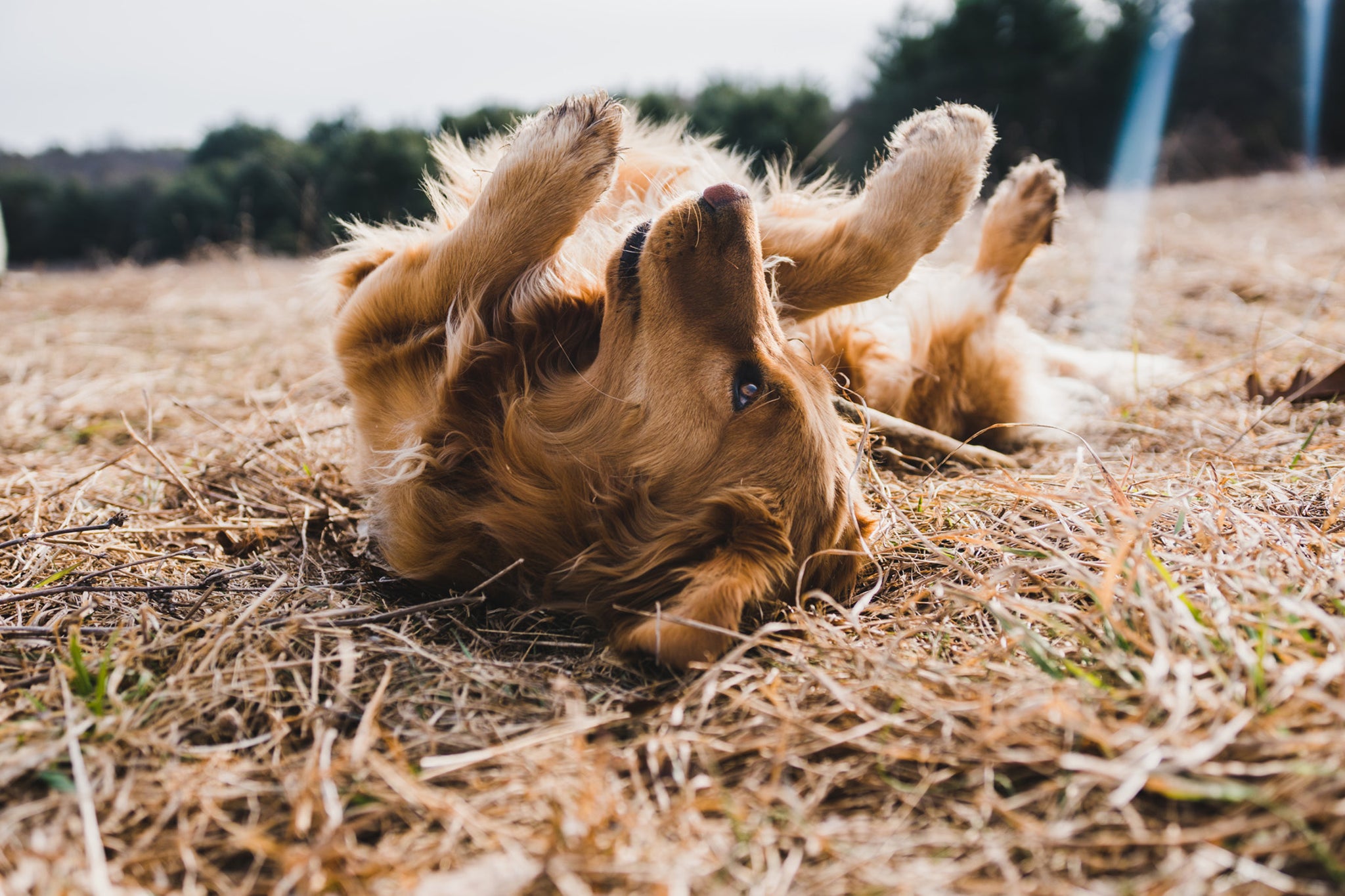
Maintain a Sense of Normalcy
It’s important to maintain a schedule with your dog for feeding time, play, walks, and sleep even as they are coping with loss. They need to be shown that life goes on and the outside world exists, full of lots of fun scents and sounds. Dogs should continue with their normal schedule to reduce the stress of losing a family member.
Consider Dog Pheromones
Dog pheromones are available in a variety of products such as diffusers, collars, and sprays to reduce anxiety. Dog-appeasing pheromones mimic hormones released by mothers after they give birth. Releasing these pheromones may help your dog find a sense of comfort. Talk to your vet before you buy any products. You may also want to keep a blanket, toy, or belonging from whoever passed. Your dog may find comfort in the familiar scent attached to it.
Be Patient
Above all, your dog needs you to be patient with them as they cope. You may have successes and failures with this list, and different approaches work for different levels of grief and different dogs. Comfort your dog if they come in for a snuggle, and reassure them that they are okay. If the grief persists for an extended period of time and your dog is refusing to eat, contact your veterinarian. They may have options tailored more specifically to your dog and will be able to determine if there’s another underlying cause.
